#new voyager content in 2023? I love to see it!
Text
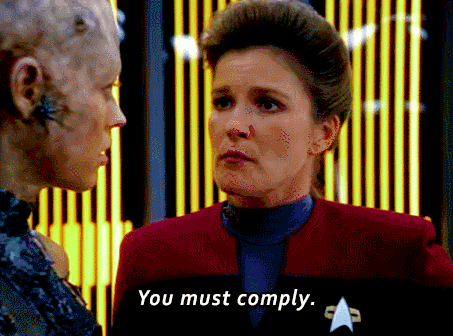
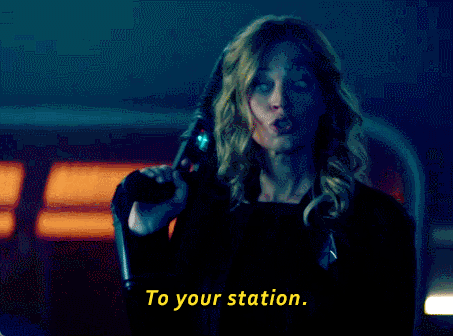
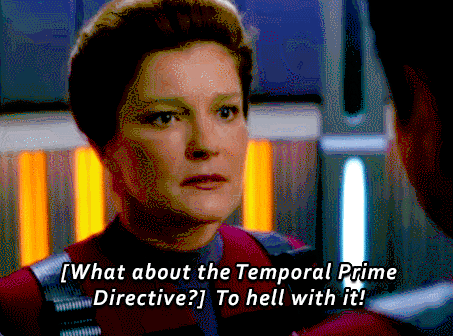

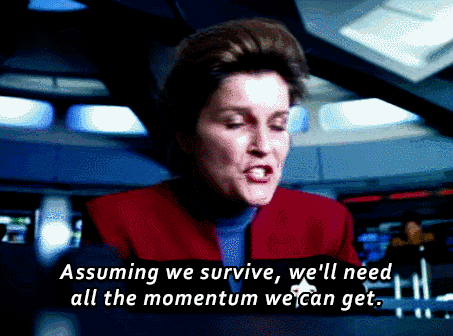
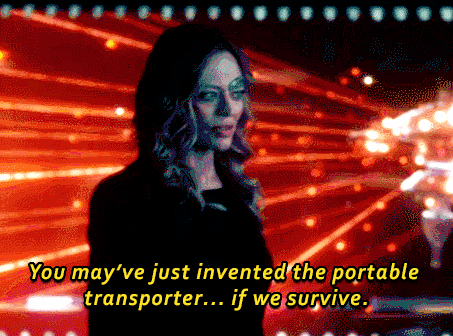

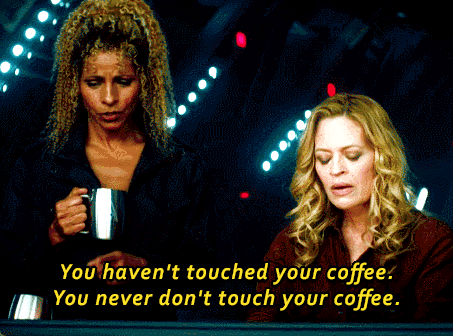
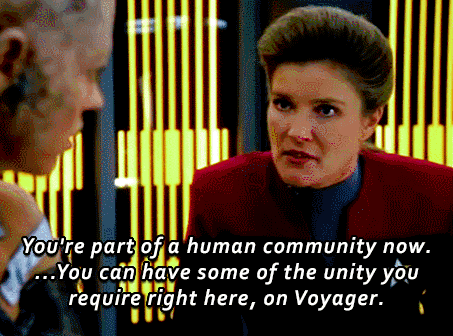
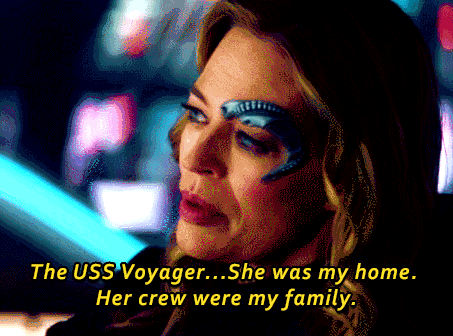
Seven in Picard + 'janeway vibes'
#star trek picard#star trek voyager#seven of nine#kathryn janeway#same energy#THE COFFEE THING#parallels#picardedit#picard spoilers#trekedit#trekkiekt#j7#(I think that's the tag???)#new voyager content in 2023? I love to see it!#star trek picard spoilers
1K notes
·
View notes
Text
(Archive) Animated movie of the day: Up (2009)
Originally posted: January 15th, 2023
What makes life worth living? Is it the accumulated experiences we gain? The dreams and aspirations we set out to accomplish? Or maybe… something simpler? Can those dreams get in the way of what truly matters?
One of the most critically lauded Pixar films, the opening is so powerful most people would agree it's already a narratively satisfying experience, if a heartbreaking one. A sentiment I agree with: an entire married life of good and bad times, unfulfilled dreams intertwined with lovely everyday experiences, and the void that comes when one half of that whole parts. All in just seven minutes, it could have been a masterpiece of a short film on it's own merits.
Which provides an interesting contention point: some claim the movie peaks at that point and is followed by an underwhelming wacky adventure, which is kind of missing the point of the story. While you can discuss whether or not the execution was on part with such a striking opening(and I can see the decidedly sillier comedy clashing a bit with the surprisingly down to Earth drama of set up), the contrast is needed for the core of the film to shine. And shine it did: this was nominated by the Academy for Best Film when it came out. Even with their contempt for animation they couldn't deny it's greatness.
You need to feel how deep the loss of Carl is, and how ingrained his sense of failure to Ellie's dream is for it to dawn the stronger he is missing on the other things life still has to offer or have already offered him. How that grand dream never coming for her didn't stop her life being worth living by his side, as it's those small experiences that made it valuable. How to move on, keep going and meeting new people was the most meaningful way to embrace the true spirit of said dreamed voyage: an adventure to share with others you care for.
In the words of Doctor Seuss:
"Don't cry because it's over, be happy because it happened"

Oh, fuck it. I wasn't planning on bleeding into another day but there's a LOT this movie does that makes it a masterful showcase of visual design and storytelling. From the different, subtle shifts in color grading that can completely change how the same space feels, to it's almost religious commitment to shape language and how that communicates character.
Sure, it's unsubtle but tells SO much about the contrast of personalities that it gets the point across without words. The fact Russel is round the same way Ellie's furniture is designed isn't a coincidence. Both in the general(his friendly nature) and in the specifics of the movie's conflict (his role being a new person for Carl to share his life with), the decision is pretty deliberate and pays off big time


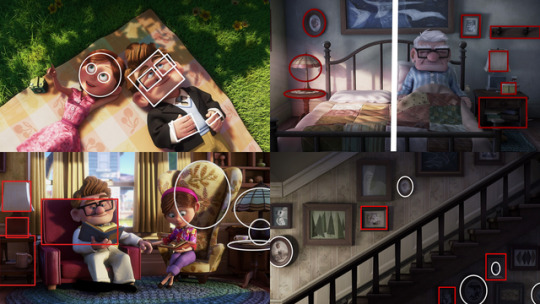

Also explains why Charles Muntz is so triangular. Specifically triangles pointing downwards. Unstable, passionate. Dangerous. Tragic. The perfect foil for Carl, but arguably more so for Ellie. She could treasure the little things even if some of her wildest dreams couldn't be achieved, which made her life fulfilling. He couldn't move on from his own, so he gave everything away for a fool's errand.

And of course, shape language gets reinforced with body language. One frame. You can really tell the kind of characters they are with just that.
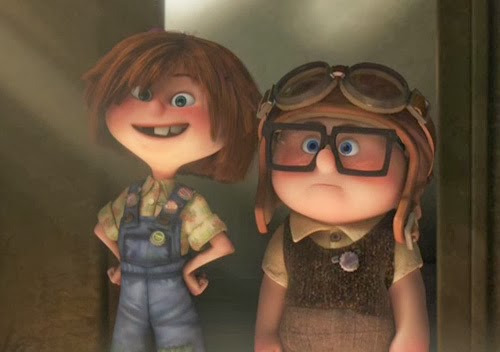
In case it's not obvious I love this movie. Some of it's comedy is a little too goofy for my taste, sure, but the overall package just hits the right way. Sure, it's romantic and it's central plot device doesn't lack a sense of the absurd, but those emotional peaks render any complaint I could have otherwise completely void.
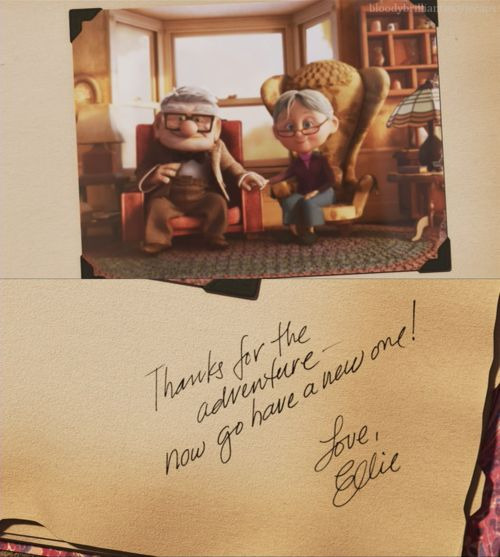

#roskirambles#animated films#adventure film#fantasy films#comedy film#drama film#disney#pixar#up#pete docter#bob peterson#tom mcarthy#ed asner#cristopher plummer#jordan nagai#michael giacchino
5 notes
·
View notes
Text
ARC Review: The Adventures of Amina Al-Sirafi by Shannon Chakraborty

Order
Add to Goodreads
Publication Date: February 28, 2023
Synopsis:
Shannon Chakraborty, the bestselling author of The City of Brass, spins a new trilogy of magic and mayhem on the high seas in this tale of pirates and sorcerers, forbidden artifacts and ancient mysteries, in one woman’s determined quest to seize a final chance at glory—and write her own legend.
Amina al-Sirafi should be content. After a storied and scandalous career as one of the Indian Ocean’s most notorious pirates, she’s survived backstabbing rogues, vengeful merchant princes, several husbands, and one actual demon to retire peacefully with her family to a life of piety, motherhood, and absolutely nothing that hints of the supernatural.
But when she’s tracked down by the obscenely wealthy mother of a former crewman, she’s offered a job no bandit could refuse: retrieve her comrade’s kidnapped daughter for a kingly sum. The chance to have one last adventure with her crew, do right by an old friend, and win a fortune that will secure her family’s future forever? It seems like such an obvious choice that it must be God’s will.
Yet the deeper Amina dives, the more it becomes alarmingly clear there’s more to this job, and the girl’s disappearance, than she was led to believe. For there’s always risk in wanting to become a legend, to seize one last chance at glory, to savor just a bit more power…and the price might be your very soul.
My Rating: ★★★★★
*My Review below the cut.
My Review:
This was SO good. I LOVED Amina Al-Sirafi, badass pirate and adventurer and also a 40-something-year-old mom. She wanted to stay home with her daughter and keep her safe, but she also craved adventure, and she spent a lot of the book trying to reconcile the two desires.
The characters were wonderful. Amina, of course, but also her chaos demon ex and her group of friends and former shipmates (deadly and interesting in their own rights) and the mysterious Jamal who is chronicling the story.
The adventure was rollicking and fantastical and of course every solution led Amina and her friends further from their safe lives and deeper into trouble.
I LOVED seeing through the eyes of a middle-aged Muslim mother -- who is also a pirate. It made everything new and fresh and enhanced the story so much. Because those aren't just descriptors - Amina's age and daughter and faith came into play in every decision she made. It's part of what made her feel so fleshed-out and real as a character.
The story is thick with magic and eventually you don't question it - you just go with it. I loved seeing all the magical creatures and beings and learning about them. One of my favorite things about reading diverse books is the exposure to legends and myths and magical creatures I am not familiar with.
I listened to the audiobook and it made everything even more magical and immersive. The narrators used different voices for each character and really made them come alive. I especially liked having one narrator for the story and one for the historical / chronicler sections.
I also really enjoyed how the narrator leaned away from the mic and muffled her voice when Amina was 'arguing' with Jamal about how the story should be told.
This is one I will definitely reread and I can't wait for a sequel!
*Thanks to NetGalley and Harper Voyager for providing an early copy for review.
#amina al sirafi#shannon chakraborty#netgalley#best books of 2023#favorites#I loved this so much#arc review#shilo reads#rollicking magical adventure#40-something Muslim mom and pirate
5 notes
·
View notes
Text
Vagina Obscura: Legitimation, Authority, and Authenticity in Sexual and Reproductive Health
Episode Transcript
About a month ago, I came across a brand new podcast series through Apple titled Unruly. American art influencer and writer Kimberly Drew serves as the host, and here is how she sums up the series at the beginning of each episode: “Where we take the quiet ways women’s bodies are commodified, defined, regulated and we name them – out loud. We wanna educate and support each other. Because your body is your business” (1:33). So far, Drew and her featured guests have covered topics such as social media, the beauty industry, fertility treatments, and menopause. Unruly has become one of my favorite podcasts so far, and while I would absolutely love to cover everything about the series, this blog post will strictly focus on “Episode 3: Body Language”. In this episode, Drew speaks with Rachel E. Gross, the author of Vagina Obscura: An Anatomical Voyage”. In this book, Gross informs the audience about a growing movement to reclaim how women’s bodies are described within the medical industry. We shall be analyzing the episode’s content by using Craig Martin’s concepts of legitimation, authority, and authenticity from his book A Critical Introduction to the Study of Religion.de 3: Body Language”. In this episode, Drew speaks with Rachel E. Gross, the author of Vagina Obscura: An Anatomical Voyage”. In this book, Gross informs the audience about a growing movement to reclaim how women’s bodies are described within the medical industry. We shall be analyzing the episode’s content by using Craig Martin’s concepts of legitimation, authority, and authenticity from his book A Critical Introduction to the Study of Religion.
In earlier chapters from A Critical Introduction to the Study of Religion, Martin informs his audience about how social reproduction, or conformity, takes place through socialization. In Chapter 7: “How Religion Works: Legitimation”, Martin expounds on the notion of conformity further by introducing us to the concept of legitimation. Martin writes, “What happens when ‘that’s just the way things are’ doesn’t suffice as an answer? What happens when individuals probe further and require further justifications? This is when societies turn to what scholars call ‘legitimation’” (103). Basically, people are more likely to participate in a social norm if there is a good enough reason, and people are also more likely to participate if there is a danger or consequence as a result of refusing to comply. So, where can we find legitimation within Drew and Gross’ exchange? At some point in the episode, Drew shifts the conversation towards the experience of intersex folks in America. According to Gross, after an intersex person is born, it is not unusual for a doctor to perform a surgery to make the child’s genitalia appear “normal”. It should be noted that these people do not get to consent to these operations when they take place. Based on Gross’ inputs, we can see that medical professionals legitimize these surgeries by claiming “‘there’s a natural state of being that’s having men and women’” (10:34). Although there is no real danger to living in a world where the gender binary does not exist, these doctors are quite insistent about keeping sex and gender strictly male and female, or man and woman.

The next concept we will discuss is authority, and Martin has a lot to say about it as well as its various forms. The following statement from Chapter 8: “How Religion Works: Authority” stood out to me the most: “A second type of authority is linked to religious figures or social positions above one in a social hierarchy…For those who claim to be adherents to these traditions, the actions or commands of these authoritative figures have a special, important, or sacred status” (121). One example from Unruly comes to mind when I reflect on this. Firstly, Drew asks Gross how long the negative language surrounding women’s bodies has existed, and Gross dates this back all the way to Hippocrates, an ancient Greek physician. According to Gross, he “did decide to name the genitals and he named them ancient Greek for ‘the part for which you should be ashamed…’” (18:18). Gross also briefly mentions that Hippocrates did not look at any actual female bodies; instead, he relied on whatever the midwives told him. Okay, so how does this affect us now? As more scientists and doctors began to research human anatomy, more shame-based terms were adopted. For instance, the French and German languages use words for “shame” to create a new word to describe a part of the female anatomy. For those who are unaware, Hippocrates is still relatively important when it comes to modern medicine; in fact, doctors swear to follow the Hippocratic Oath, a pledge to follow a specific code of ethical behavior. So, one could argue that since Hippocrates is a key figure in the history of medicine and healthcare, he holds credibility or authority over contemporary doctors. As a result of this status, many doctors continue to use language which does not feel inclusive for the majority of patients.
Finally, in the ninth chapter of his book, Martin touches on authenticity. He refers to this concept as a rhetorical power play; in other words, claiming authenticity “sets up a binary opposition between ‘the real’ or authentic and ‘the unreal’ or inauthentic—between an ‘us’ and a ‘them’” (146). This explanation is arguably pretty straightforward, and similarly to legitimation, we can see this concept at play. Towards the end of this episode, Gross concludes her thoughts by offering some advice to the folks tuning in to Unruly. She says, “There is a dynamic that can happen in the doctor’s office that we are all susceptible to…where they’re sort of an authority figure and you’re sort of the patient and…it’s like frowned upon to ask too many questions or to bring in your own research” (25:20). Although Martin uses religious-oriented events or people to describe authenticity, we can clearly see some sort of divide between the patient and the doctor. This divide can occur for many reasons; for instance, some women may feel hesitant about vocalizing their concerns because they feel intellectually inferior to the doctor. Although these women know their own bodies better than anyone else and are totally capable of doing personal research, they may feel like they lack credibility in their opinion because they do not have a professional degree. Furthermore, America’s healthcare system is designed to be fast-paced and offer quick solutions. Some Americans are completely aware of this, and they may feel as though they will be an inconvenience or a burden if they decide to ask multiple follow-up questions or ask for an alternative solution to their ailment. Essentially, the system appears to discourage patients from “overstepping” their role and questioning what a doctor suggests initially.
If one were to parse through the other episodes of Unruly, one may find more examples of religious concepts. However, it is safe to say that Episode 3: “Body Language” shows how we can use religious concepts like legitimation, authority, and authenticity to critically analyze popular culture and social norms.
0 notes